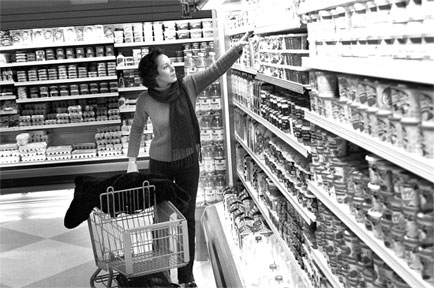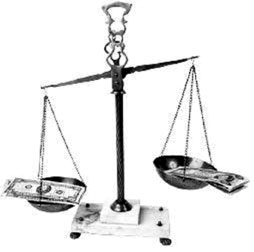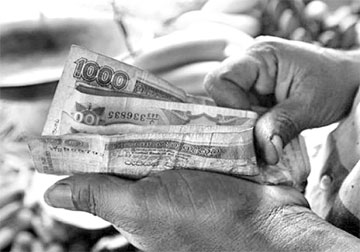Consumer, the king no more!
By Lionel WIJESIRI
Many consumer activists say that we are a complacent nation. I, for
one, fully endorse this view. Though the consumer movement in Sri Lanka
is well spread, we are often hesitant to fight against exploitation by
manufacturers and sellers because of our lethargic attitude. This in
turn has helped the seller or the manufacturer to exploit us more, and
unfortunately, we do not seem to understand this simple truth.
The “educated” urbanites say it is the lack of time that is keeping
them away from seeking legal remedies, and on many occasions, the value
of the transactions is so small that they tend to ignore it.
 This attitude has to be viewed in the light of the practice in
developed countries where the seller declares, “In case you are not
fully satisfied with our product, you can bring it to us and we will
return your money immediately”. This clearly indicates what level our
consumer consciousness should stand. This attitude has to be viewed in the light of the practice in
developed countries where the seller declares, “In case you are not
fully satisfied with our product, you can bring it to us and we will
return your money immediately”. This clearly indicates what level our
consumer consciousness should stand.
In theory, all business units consider consumer satisfaction as their
objective. A consumer is said to be the king and the businessmen are
supposed to serve and satisfy him/her.
However, in reality, consumers are cheated and exploited in many
ways. To name a few: (a) selling at a higher price (b) product risk (c)
adulteration (d) duplication (e) selling substandard products (f)
artificial scarcity (g) false claims and (h) service problems during
guarantee period.
Awareness
To start with, how many of us have really understood our rights as
customers? In the minimum, we have five basic rights:
* The right to safely be protected against products, product
processes and services which are hazardous to health or life;
* The right to be informed: To be given the facts needed to make
informed choices, and to be protected against dishonest or misleading
advertising and labelling;
* The right to choose: To be able to select from a range of products
and services, offered at competitive prices with an assurance of
satisfactory quality;
* The right to be heard: To have consumer interests represented in
the “making and execution” of government policy, and in the development
of products and services.
* The right to redress: To receive a fair settlement of just claims
including compensation for misrepresentation, shoddy goods or
unsatisfactory services.
The Consumer Affairs Authority (CAA), the apex government
organisation mandated to protect consumers’ interests and ensure fair
market competition in Sri Lanka, fully endorses these rights. The CAA is
empowered to take action to safeguard the interests of consumers while
maintaining effective competition among suppliers of goods and services.
 |
|
Consumer choice is
vital and final |
In a complicated marketplace, we need to develop consumer awareness
to protect them from fraud and poor purchasing decisions. The anonymity
of Internet transactions and the prevalence of misleading advertisements
make consumer awareness especially important. It is essential that
consumers understand how to make knowledgeable purchases and avoid
obvious scams. By understanding the techniques needed to develop your
consumer awareness, you can protect your money and make smart purchasing
decisions.
Raise awareness
How do we raise consumer awareness? The meaning of the old Latin
phrase “caveat emptor” is “Let the buyer beware”. However, as a consumer
advocate, you probably prefer the motto, “Let the buyer be more aware”.
A responsible consumer has a healthy concern for the quality of goods
and services he/she considers buying and does proper research. There are
a number of ways that you can contribute to the education and awareness
of consumers.
* Start a consumer awareness blog. Post news and information as well
as reviews of products, services and companies. Begin to network with
other blogs and websites that are committed to consumer awareness.
Create alliances so you can share links and blog articles back and forth
so that more people will have this important information.
* Start consumer awareness groups on social networking and popular
portal websites, such as Facebook, Yahoo and Twitter. Post information
on your profile related to your mission of raising consumer awareness,
including links to informational websites and recent stories, to attract
people to join your groups.
* Start an online newsletter to promote consumer awareness. Send
information about consumer advocacy groups, ways to complain about
troublesome companies and product recall information to your email
contacts regularly (weekly or monthly).
None of these will cost you money, but they will help in the long
run.
Role of NGOs
With the younger generations taking control of the economy, maybe the
next decade will witness a high degree of consumer awareness and the
concepts of “consumer preference or resistance” and “consumer choice”
might eventually become vital aspects of the economy. Until such time,
is there anything we can do?
Or, maybe one might ask first, what can the Government do to improve
the position? Generally, the role of a central government in consumer
protection is to promote legislative policy, oversee the implementation
of legislation and oversee the work of various government agencies. Very
often, the actual enforcement of legislation is left to local
authorities.
However, voluntary organisations can play a better role. They can
build consumer awareness through periodical exhibitions, meetings,
demonstrations, and through television, radio and such other mass media.
They can address students, women’s groups and social organisations. They
can bring out journals to educate consumers.
 |
|
Are we getting our
money’s worth? |
Trained social workers can educate lower income groups through
various programs. The tricks and sharp practice of unscrupulous traders
could be exposed. Consumers’ buying power, credit and satisfaction can
be improved. These voluntary societies can ideally represent consumers
in advisory bodies on behalf of the consumers.
In short, these voluntary bodies can act as the listening board for
consumer grievances. They can follow complaints against shopkeepers,
leaders and manufacturers and file public interest litigation in courts.
We can take a lesson from India’s Swadeshi Movement where goods are
boycotted when exploitation is proven beyond doubt and they are listed
and circulated among the members. These Indian voluntary bodies have
achieved spectacular results. Hundreds of cases have been won in various
consumer courts on behalf of the consumers.
With the liberalisation of our economy, many multinational
corporations entered Sri Lanka. Some of them adopt unfair trade
practices and try to exploit the consumer. So, an alert consumer is the
need of the hour. The consumer must be made aware of his/her rights. The
success of consumerism is a strong function of consumer awareness and
the assistance given by the government.
Organisations and social leaders too have a serious role to play.
They should take up an advisory role and guide the consumers and make
way for the realisation of the objectives of the Consumer Protection
Policy.
Consumer empowerment
In the next few years, consumers in their own interest have to
realise their role and importance in the right perspective. In a
competitive economic environment, consumers have to exercise their
choice either in favour of or against the goods and services. Their
choice is going to be vital and final.
They should realise their importance and prepare themselves to
exercise their rights with responsibility. It is very often said that
the “Customer is sovereign and consumer is the King.” If that is really
so, why do we have the Consumer Protection Act? Why is there a need for
protecting the King? Should it not be rightly called “Consumer
Sovereignty Act”?
The dictum in democracy is that citizens get a government they
deserve. Similarly, consumers in society get a position in the market
depending on what they do or do not do. It is agreed on all hands that
“consumer empowerment” in Sri Lanka has a long way to go.
This is the right time to begin to act. |

